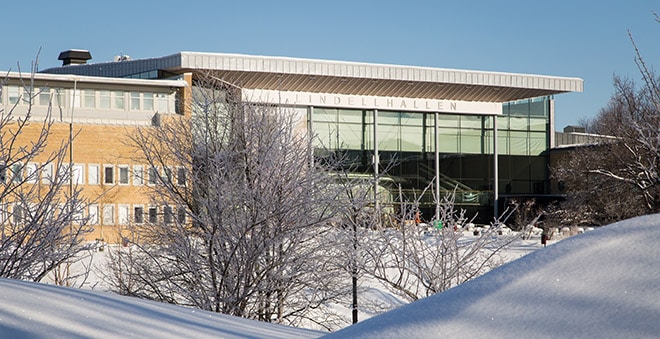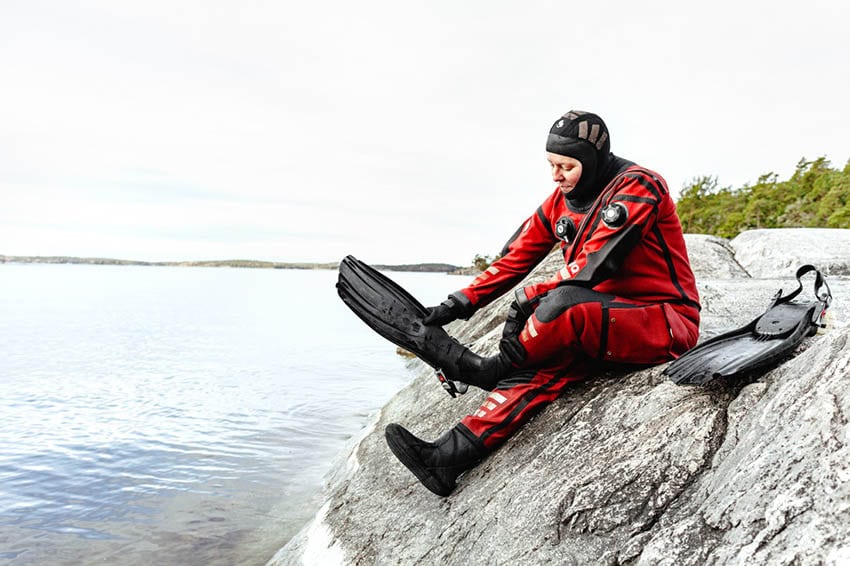In the autumn of 2019, the trade unions at Umeå University received a consultation document proposing a policy for the handling of research data.

“We were critical of certain points,” says Håkan Lindkvist, chair of the Saco-S committee at Umeå University, “and when the proposal was discussed in the university’s central collaboration group last summer, Saco-S called for a co-determination negotiation. This ended in disagreement, as the employer did not want to change any of the wording”.
The matter was escalated to a central negotiation, which also ended in disagreement. The document in question is a proposed “Policy for the handling of research data”.

“The document is about open science. It is about the FAIR principles and research data being available to anyone who wishes to continue working with it. SULF supports that 100 percent,” says Karin Thorasdotter, the SULF national officer who led the central negotiation. “The document is also about the principle of openness. And of course, we at SULF support that just as much.”
But the issue takes a wrong turn, she says, when Umeå University suddenly equates the principle of openness with the university owning research data that the university’s researchers produce.
“The laws are not about ownership”
The proposal states that “research data generated within the framework of research at Umeå University are publicly available documents of the authority, in accordance with the legislation on public access to official documents and on archives, and they are owned by Umeå University.”
“I agree that research data is public documents according to the legislation on public access to official documents and on archives,” says Thorasdotter, “but that does not mean that the data is owned by Umeå University. The laws in question are about responsibility for research data and not about ownership.”
SULF believes that research data can sometimes meet the threshold requirement for originality of content, and then the researcher has the right to copyright protection.
“The question of whether research data is covered by copyright must be decided in each individual case, and we would have wished that to have been made clearer in the proposed policy, not less clear. The researcher always has copyright protection of research results.”
May restrict mobility
The consequences of Umeå University claiming ownership of research data are unclear, but in one case, it is specified in the proposed policy. The proposal states that if employees change workplaces and wish to take copies of research data “they should reach agreement their head of department on whether and how this can be done”. In the negotiations, SULF has demanded that “whether” be removed from the text, but the university has not agreed to this.
“The problem with needing the head of department’s consent to take your research data with you is that it may inhibit research processes,” says Håkan Lindkvist. “If you are told no, it restricts your mobility. Furthermore, many research projects are conducted in collaboration among many people at several different higher education institutions. How would it work then?”.
Karin Thorasdotter does not believe that in the process toward open research data, the university, science or the individual researcher have anything at all to gain from the university claiming ownership of research data.
“It is so unnecessary to bring the right of ownership into this context,” she says. “It leads the process toward open research data onto a path that no one benefits from. We are worried that the choice of words may have negative consequences for the implementation of open science.”
She thinks that Umeå University is making a rod for its own back. Håkan Lindkvist agrees.
“The university uses the phrase ‘own research data’, which upsets many researchers. It will continue to upset many of our members if the university approves the policy. During the central negotiation, we made it clear that this will create problems.”
Not responding to the criticism
Universitetsläraren has contacted Umeå University to ask about SULF’s criticisms, but the university has avoided answering our questions and has instead provided a statement.
Per Ragnarsson, Deputy University Director and Budget Manager at Umeå University, writes in an email:
“Umeå University believes that everyone should have open access to research publications and research data that is wholly or partly financed by public funding to the extent permitted by legislation, ethics and commercial interests. Research data that forms the basis for scientific publications must be easily accessible for peer review, journals and publishers and be made available in accordance with the Swedish Research Council’s recommendations. Source data and materials that document the research process are the university’s documents and must, as a general rule, be archived according to the university’s document management plan for research when a research project has been completed.”

















